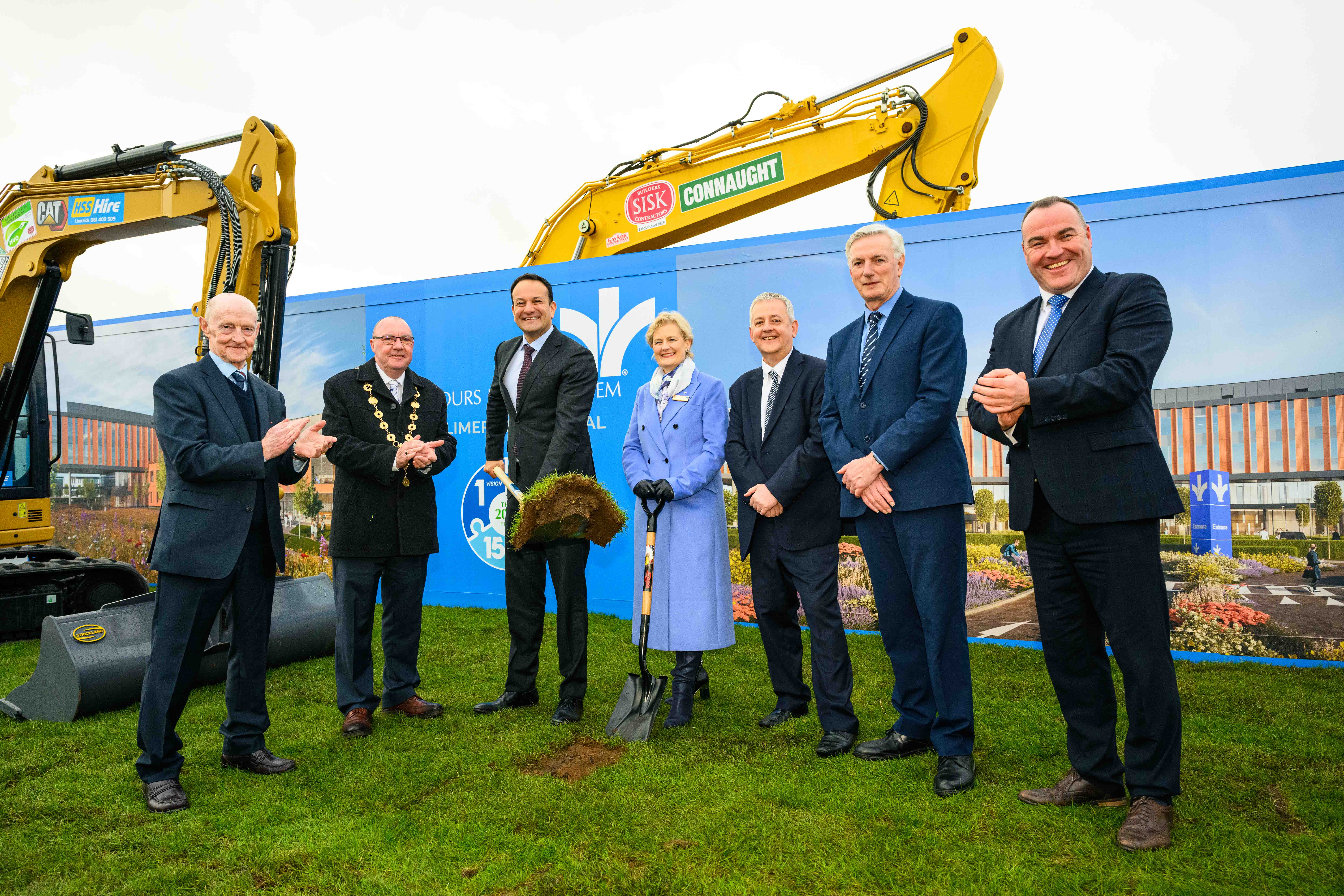Waterford’s North Quays works flagship urban regeneration project represents a major investment in infrastructure for the region and county, pictured above
Joanne Treacy, Director of the Southern Region at the CIF, describes how the industry is transforming the region, driving growth and acting as a powerhouse of development in the country
“There’s so much going on across the whole region, so much that I have had to jump from one location to the next meeting with members delivering on some fantastic projects,” says Joanne Treacy, the CIF’s Southern Region Director.
This conversation, in fact, takes place in the wake of one such visit through Limerick.
“It’s so impressive, even in passing. I’ve just seen the new hospital in Limerick (Bon Secours) and you have the Eli Lilly manufacturing plant underway, which is a huge investment in the region and county,” she says.
An expansive list of projects underway or recently completed follow, spanning across the region including Waterford’s North Quays works flagship urban regeneration project, representing major investment in infrastructure for the region and county.
Cork’s performance in the first quarter of this year has been notably strong, reflecting the region’s overall resilience and growth.
Cork, in particular, stands out for its impressive number of commencements.
“We’re talking about the guts of 1,000, in the region of 990 new commencements since
the start of this year alone,” Joanne says.
“It’s staggering really, that represents about a fifth of all new commencements in the country coming out of Cork alone.”
The ferocity of Cork’s development underscores the county’s significant contribution to the country’s economic development, demonstrating just how crucial the region is to the wider national economic picture.
“I think we need to give credit where it’s due also in how positive the impact has been of certain government schemes including the development contribution waiver and water rebate scheme,” she adds.
Cork’s success highlights its pioneering spirit and determination to push the boundaries of what’s achievable, setting a compelling example for the rest of the country.
Joanne, however, warns of becoming complacent in the face of the industry’s ability and commitment to deliver on projects across the country.
“While the industry, and our members especially, are driven to deliver on all of these projects present and future we have to face the reality that there are a lot of challenges facing the industry that require action and updated policy,” she says.
Delays, particularly in planning processes, hinder progress significantly. Funding-related issues also pose significant obstacles, especially in infrastructure projects like roads, where local authorities are unable to advance without adequate funding.
This holds true for ambitious projects such as the proposed light rail and commuter rail systems in Cork, both integral to regional development plans.

A new €190 million Bon Secours hospital in Ballysimon, Limerick, is to be opened in 2025 and is being delivered by Sisk. The hospital is being built on a sustainable site with access to public transport, provision for EV parking and facilities for cyclists. Buildings will be equipped with heat pump technology for heating and cooling, green roof technology and natural daylight and ventilation will be used where appropriate. Pictured at the turning of the sod last year, from left, Geoff Meagher of Bon Secours, Francis Foley, Mayor of the City and County of Limerick, the then Taoiseach Leo Varadkar, Dr Siobhan Grimes, Bill Maher, CEO, Denis O’Sullivan, and Jason Kenny of Bon Secours Health System. Photo by Diarmuid Greene
But the pace of decision-making is crucial, as delays in route selection for road networks can impede not only transportation infrastructure but also housing developments on zoned land.
“There’s a lot of these jigsaw pieces that we just need to slot into place, which will ultimately release the region and enable a lot more development.”
The eagerly-awaited Planning and Development Bill is on the horizon, the draft having been published in November 2023, setting the stage for discussions and preparations for its implementation.
“The CIF has worked extremely hard with our members to communicate effectively the best implementation of the plan to optimise the planning process to be something that everyone can benefit from,” she says.
However, alongside the legislative framework, the resourcing of the planning department is a critical factor.
Enough resources are essential for expediting decision-making timelines, as they enable efficient processing and handling of planning applications.
Ensuring sufficient resources are allocated to the planning department is crucial for streamlining processes and facilitating timely decisions.
The upcoming review of the National Planning Framework (NPF) is of paramount importance for the region, as it presents a crucial opportunity to set ambitious targets and chart a course for sustainable development.
“It’s not enough now to simply set targets to reach, instead we need to see the setting of minimum thresholds to surpass, matched with the funding and support needed to deliver on those plans,” Joanne says.
Achieving this ambitious vision necessitates various key components, including access to serviced land, robust infrastructure, and essential services like water and wastewater facilities.
Moreover, there is a pressing need for additional zoned land, both serviced and serviceable, to accommodate increased demand and attract more foreign direct investment.
The review of the NPF is something that will have a major impact for our members in the region. It charts the course for a future that we can anticipate and plan for, which is crucial to the successful completion of major infrastructure projects,” Joanne says.
“There is real opportunity here just waiting to be unlocked, with the right framework, improved planning process and the funding to match, we will see not just this region but the whole country progress swiftly to a more sustainable and prosperous future.”








